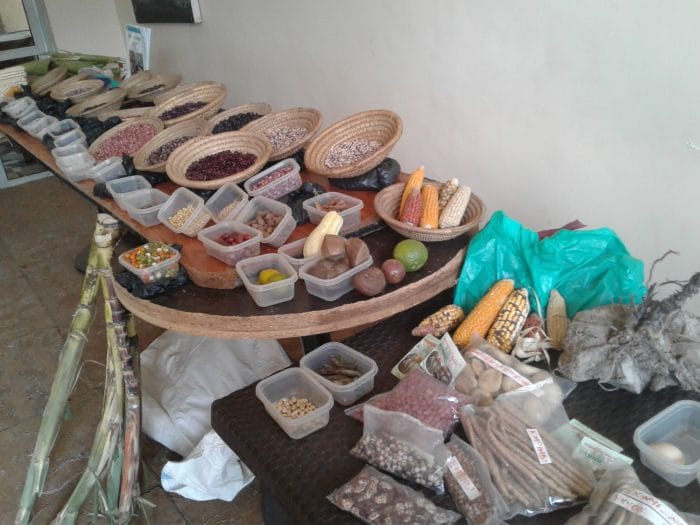Ugandan farmers are concerned with the ongoing process by government to register indigenous seeds, saying this might be a ploy to technically phase out genetic seeds from them.
According to Joseph Magezi, the chairman Mityana district farmers’ association, farmers in different parts of the country is being asked to register in group as well as their seed. This is done by agricultural officers in the districts with the help of National Agriculture Research Organization (NARO).
Magezi further reveals, they are being asked to give some of the indigenous seeds to the officers who always give different seeds to them in return which seeds cannot be replanted.
Magezi adds that the new seeds can not be multiplied, not be exchanged just like the indigenous seeds. Something he says is affecting the poor farmers and in the long run will contribute to food scarcity.
He now asks the president not to sign the proposed seed policy, saying if passed, 96% Ugandans depending on indigenous seeds will be affected.
Magezi also says, improvements should be made on indigenous seeds and not exotic seed which he termed as GMOs. He says, Ugandan being a growing country, such innovations will not be of help to the farmers and nation as a whole.
Meanwhile, the executive director food rights alliance, Agnes Kirabo says, there is a new wave in Africa to register farmer’s seeds which is eating up Uganda and asks who is having a problem with the non registered Ugandan farmers seeds.
Kirabo also says, in countries where such things have been done, seeds which were not registered and farmers who were dealing and planting them were criminalized. Its upon this point that they are organizing farmers to reflect and fight against this plan.
And Dr. Bonny Ntare, a seed scientist, says, Ugandan has over 96 crop species, 80 cultivated crops and 33 food varieties and registering them means that they are going to be patented by some other party who then will take full control of the seeds which originally belonged to ugandans.
He further advises farmers to set up seed banks where they can store their seeds for future use.
END


